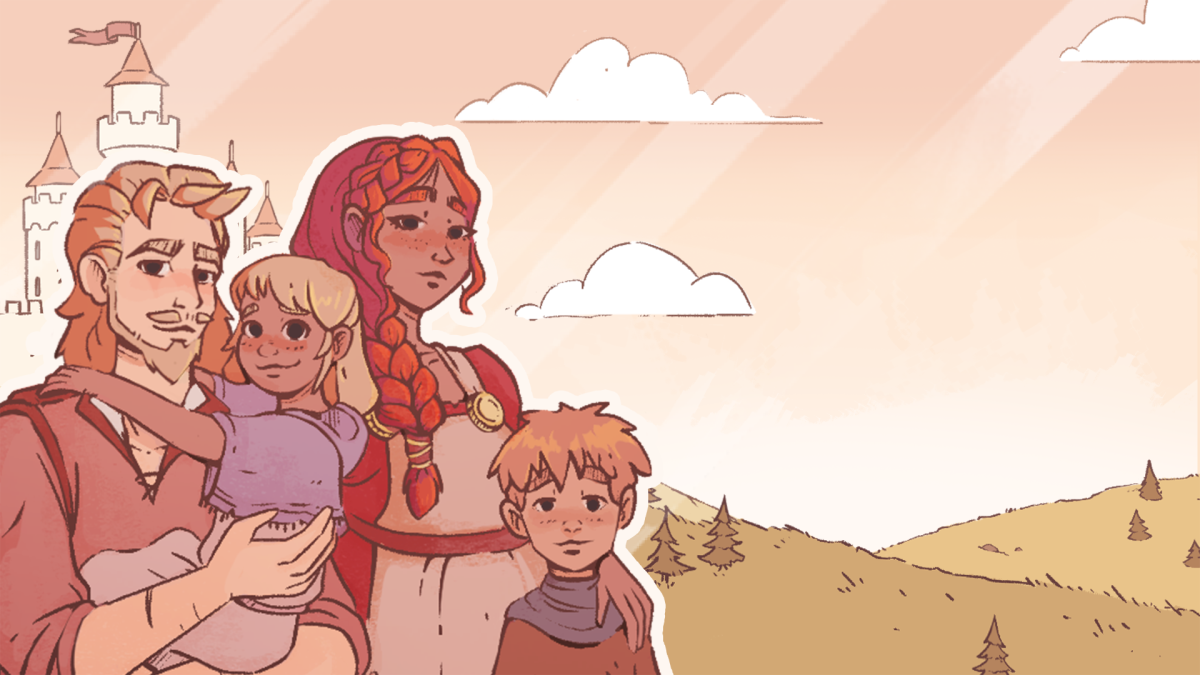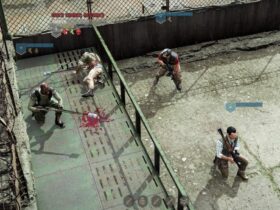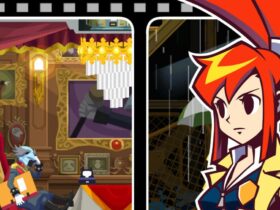Fort Lake Heritage Review
⌨️
A villager in his 40s has died after toiling a lifetime in questionable working conditions, leaving behind his beloved partner and young child. How their widows—Every Widows – React in Lakeburg Legacies, a self-proclaimed “social-based village management sim where love is your favorite resource”? immediately–Instantly— Hope to remarry. You’d think they’d at least chill the dead bodies of past lovers before moving in with someone else, but according to this game, that’s not how love works.
It’s just one of many strange contradictions lurking in an ostensibly cute and cozy game that claims to prioritize the lives and lineages of the randomly generated people who pass through my village first, before giving them less personality than Sheppard in Empire.
“Legacy of Fort Lake” at least gets off to a good start, making it clear that sexual orientation doesn’t matter here. Anyone can marry anyone not related by blood, and any couple can have children. It would be nice if the whole “falling in love” process wasn’t reduced to just quick clicks on three microscopic scenes randomly drawn from a disappointingly small list. Apparently, all love requires me, as an invisible cursor, to correctly remember at least one thing on a short list of likes and dislikes for a prospective partner.
Oh, and you hate flowers too, but are against public executions? Come on, put a ring on it. Wedding bliss.
Lakeburg is a game of 10 clever ideas, and then 20 ways to break them. This also extends to the way it has treated successive generations of peasants and nobles. Children are the lifeblood of the village: the continuation of a loving family, heirs to the village throne, apprentices to the masons. Once they turn 18, they are automatically evicted from their home and officially homeless unless you manually assign them a vacant residence. If two existing widowers get married and there isn’t enough space in their home (or you don’t have the resources to expand it) so they can both live together, young children may also be homeless. The only way the game can solve this self-inflicted problem is to have real toddlers wandering the streets until they either die or survive to adulthood, at which point they can finally have a home of their own.
kids are not good
1st image (4 in total)
The game is simpler than its busy user interface might suggest (Credit: Ishtar Games) Larger houses accommodate larger families (Credit: Ishtar Games) Apprenticeships prepare children for a tough life (Credit: Ishtar Games) Three simple choices determine whether a complete stranger is suitable for marriage (Credit: Ishtar Games)
Not only is this at odds with the community-focused village vibe the game is trying to promote, but it also shows a distinct lack of imagination. This game can show me that if a couple doesn’t support the same champion in a showroom, there’s a precise relationship affinity debuff, but can’t imagine a married couple living in two houses, or taking a slight hit to their productivity or happiness if they have to temporarily squeeze two kids into one bedroom? Can’t an 18 year old be saddled with some sort of undesirable “stuck in the nest” trait when I find the resources (or just have time to notice) to build or allocate an empty house? Do my villagers really care so little about their children?
Building the villages these people live in is the other half of the game, and at first it felt like a lot to think about; but then there was a lot to discover. Every time I open a new menu, a seemingly endless amount of tutorial text pops up. I appreciate the attempt to explain everything, even if it quickly turns out that it doesn’t matter, because while Legacy of Rakeburg is full of stats, most of my interactions have been frustratingly hands-off.
I can’t decide where to place any buildings, or even how many buildings I can have, which creates problems on the personal and production side of the social sim experience. I couldn’t build a manufacturing area in the center of the village and house the workers in the prettiest of places while driving the royals to the worst. I couldn’t choose to have a village prosper by exporting manufactured goods, or put art and welcoming social spaces above all else. I can’t even build two lumberjack huts if I have a persistent shortage of lumber, or if there are more skilled fellers than I need to fill.
1st picture (5 pictures in total)
Happy employees are doing work they love and are more productive (Credit: Ishtar Games) (Credit: Ishtar Games) Marriage is an emotionless, easy-tap thing (Credit: Ishtar Games) Generic mini-scenarios try to give your drone some personality (Credit: Ishtar Games) Strangely, friendship doesn’t really matter in this game (Credit: Ishtar Games)
Even though I have more things to do as the game progresses, there are more and more of the same things to click. Build enough houses for everyone, make sure people have a job they’re not good at, make people marry their best mates as quickly as possible, upgrade everything I can. complete. When I suddenly let people live the lives of assassins, master forgers, disgruntled mentors, eager apprentices, and even queens, I didn’t feel any different: they were just another bunch of stats to cram into a free slot so I could make another set of numbers go up. I’ve never seen a tailor who spent his life sewing clothes, or a painting that some villager claims to love so much, or even just people walking out into the fields in the morning. Instead, I spent hours staring at the same overview, where the life of the villagers was nothing but strips and numbers.
It’s a strangely impersonal experience for a game about relationships. I’m a god-like being in isolation, not a small mayor with big dreams, so I never have to worry about angry mobs kicking me out if I don’t live up to their expectations. No village can compare to my efforts, nor can any village attract higher quality villagers. The villagers don’t seem to care about each other in any obvious way, or take pride in their work. The only real goal is accumulating “prestige,” a short-lived, passively acquired substance that serves as end-game score once my pre-allocated number of game years is exhausted, and is then converted into coins that I can use to unlock artwork in the gallery showing general scenes of country life. Nothing worth trying for.
Fort Lake Heritage likes to pretend that its villagers have hopes and dreams, but it only sees them—and me—as units of production, not people.
Discover more articles in our categories Gaming & News & Anime.
Thanks for visiting we hope our article Fort Lake Heritage Review
, don’t forget to share the article on Facebook, instagram and whatsapp with the hashtag ☑️ #Fort #Lake #Heritage #Review ☑️!














Leave a Review